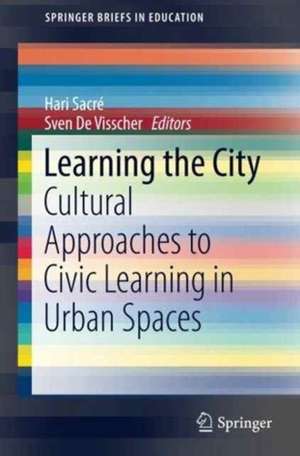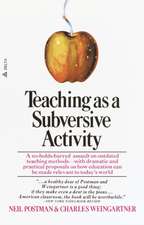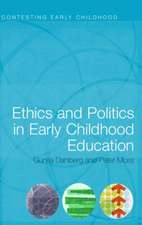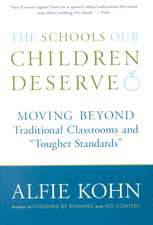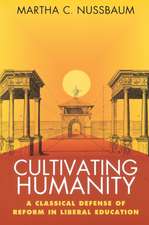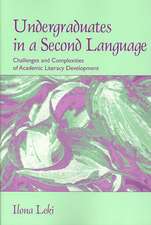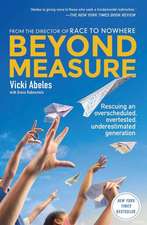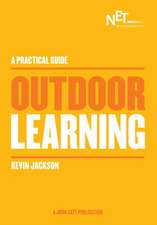Learning the City: Cultural Approaches to Civic Learning in Urban Spaces: SpringerBriefs in Education
Editat de Hari Sacré, Sven De Visscheren Limba Engleză Paperback – 25 oct 2016
Din seria SpringerBriefs in Education
-
 Preț: 317.28 lei
Preț: 317.28 lei -
 Preț: 478.71 lei
Preț: 478.71 lei - 20%
 Preț: 387.43 lei
Preț: 387.43 lei - 17%
 Preț: 392.10 lei
Preț: 392.10 lei -
 Preț: 196.30 lei
Preț: 196.30 lei -
 Preț: 394.40 lei
Preț: 394.40 lei -
 Preț: 356.31 lei
Preț: 356.31 lei -
 Preț: 444.52 lei
Preț: 444.52 lei -
 Preț: 196.15 lei
Preț: 196.15 lei -
 Preț: 262.86 lei
Preț: 262.86 lei -
 Preț: 370.60 lei
Preț: 370.60 lei -
 Preț: 376.59 lei
Preț: 376.59 lei -
 Preț: 379.68 lei
Preț: 379.68 lei -
 Preț: 408.44 lei
Preț: 408.44 lei -
 Preț: 376.22 lei
Preț: 376.22 lei -
 Preț: 378.34 lei
Preț: 378.34 lei -
 Preț: 346.59 lei
Preț: 346.59 lei -
 Preț: 377.18 lei
Preț: 377.18 lei -
 Preț: 377.35 lei
Preț: 377.35 lei -
 Preț: 476.03 lei
Preț: 476.03 lei -
 Preț: 376.43 lei
Preț: 376.43 lei -
 Preț: 379.48 lei
Preț: 379.48 lei -
 Preț: 479.29 lei
Preț: 479.29 lei -
 Preț: 340.61 lei
Preț: 340.61 lei -
 Preț: 377.18 lei
Preț: 377.18 lei -
 Preț: 377.57 lei
Preț: 377.57 lei -
 Preț: 376.59 lei
Preț: 376.59 lei -
 Preț: 377.18 lei
Preț: 377.18 lei -
 Preț: 380.84 lei
Preț: 380.84 lei -
 Preț: 379.09 lei
Preț: 379.09 lei -
 Preț: 354.09 lei
Preț: 354.09 lei -
 Preț: 377.95 lei
Preț: 377.95 lei -
 Preț: 379.68 lei
Preț: 379.68 lei -
 Preț: 377.35 lei
Preț: 377.35 lei -
 Preț: 346.59 lei
Preț: 346.59 lei -
 Preț: 444.52 lei
Preț: 444.52 lei -
 Preț: 376.22 lei
Preț: 376.22 lei -
 Preț: 381.21 lei
Preț: 381.21 lei -
 Preț: 348.13 lei
Preț: 348.13 lei -
 Preț: 409.25 lei
Preț: 409.25 lei -
 Preț: 410.17 lei
Preț: 410.17 lei -
 Preț: 377.57 lei
Preț: 377.57 lei -
 Preț: 380.63 lei
Preț: 380.63 lei -
 Preț: 376.59 lei
Preț: 376.59 lei -
 Preț: 377.57 lei
Preț: 377.57 lei -
 Preț: 380.07 lei
Preț: 380.07 lei -
 Preț: 378.54 lei
Preț: 378.54 lei -
 Preț: 379.48 lei
Preț: 379.48 lei -
 Preț: 377.73 lei
Preț: 377.73 lei -
 Preț: 342.74 lei
Preț: 342.74 lei
Preț: 355.07 lei
Nou
Puncte Express: 533
Preț estimativ în valută:
67.94€ • 71.13$ • 56.22£
67.94€ • 71.13$ • 56.22£
Carte tipărită la comandă
Livrare economică 01-07 aprilie
Preluare comenzi: 021 569.72.76
Specificații
ISBN-13: 9783319462295
ISBN-10: 3319462296
Pagini: 93
Ilustrații: XI, 98 p. 4 illus. in color.
Dimensiuni: 155 x 235 x 8 mm
Greutate: 0.24 kg
Ediția:1st ed. 2017
Editura: Springer International Publishing
Colecția Springer
Seria SpringerBriefs in Education
Locul publicării:Cham, Switzerland
ISBN-10: 3319462296
Pagini: 93
Ilustrații: XI, 98 p. 4 illus. in color.
Dimensiuni: 155 x 235 x 8 mm
Greutate: 0.24 kg
Ediția:1st ed. 2017
Editura: Springer International Publishing
Colecția Springer
Seria SpringerBriefs in Education
Locul publicării:Cham, Switzerland
Cuprins
Chapter 1: Introduction. Hari Sacré & Sven De Visscher.- Chapter 2: Geographies of Hanging out: Playing, dwelling and thinking with the city. Noora Pyyry.- Chapter 3: Storytelling in Urban spaces: Exploring storytelling as a social work intervention in processes of urbanization. Hari Sacré et al.- Chapter 4: The inner city skater facility – playground or control mechanism? On urban youth, civic learning and pedagogical dilemmas. Peter Hornboek and David Thore Gravesen.- Chapter 5: Space is more than place: The urban context as contested terrain of inclusive learning settings for adults and arena of political subjectivation. Silke Schreiber-Barsch.- Chapter 6: (Re)-Learning the city for intergenerational exchange. Helen Manchester and Keri Fraser.
Caracteristici
Enriches understanding of culture as a communication process and therefore a constitutive element of our cities Broadens understanding of urban education by applying a cultural studies framework Creates awareness in a close relation to specific urban contexts through knowledge and theories Describes a cultural understanding of civic learning, reclaiming pedagogy as a central category of cultural politics in cities Includes supplementary material: sn.pub/extras
